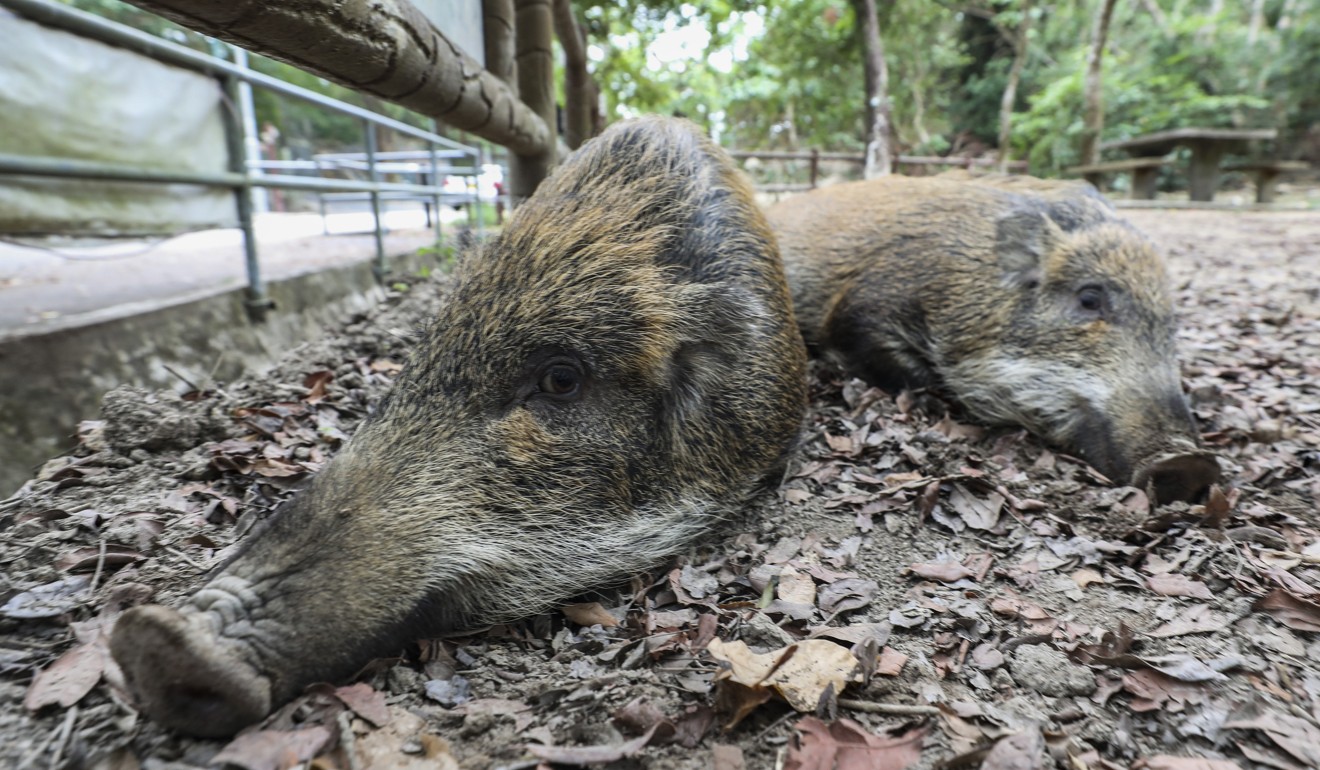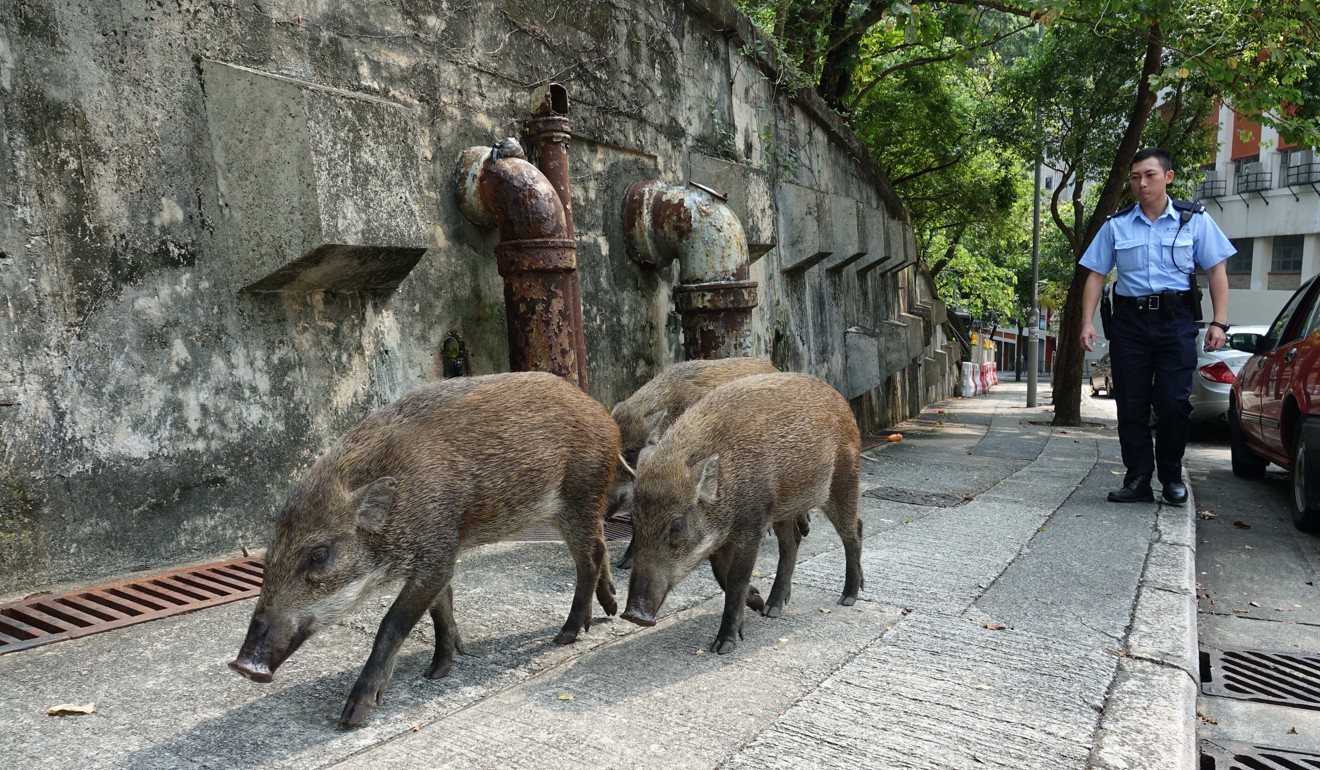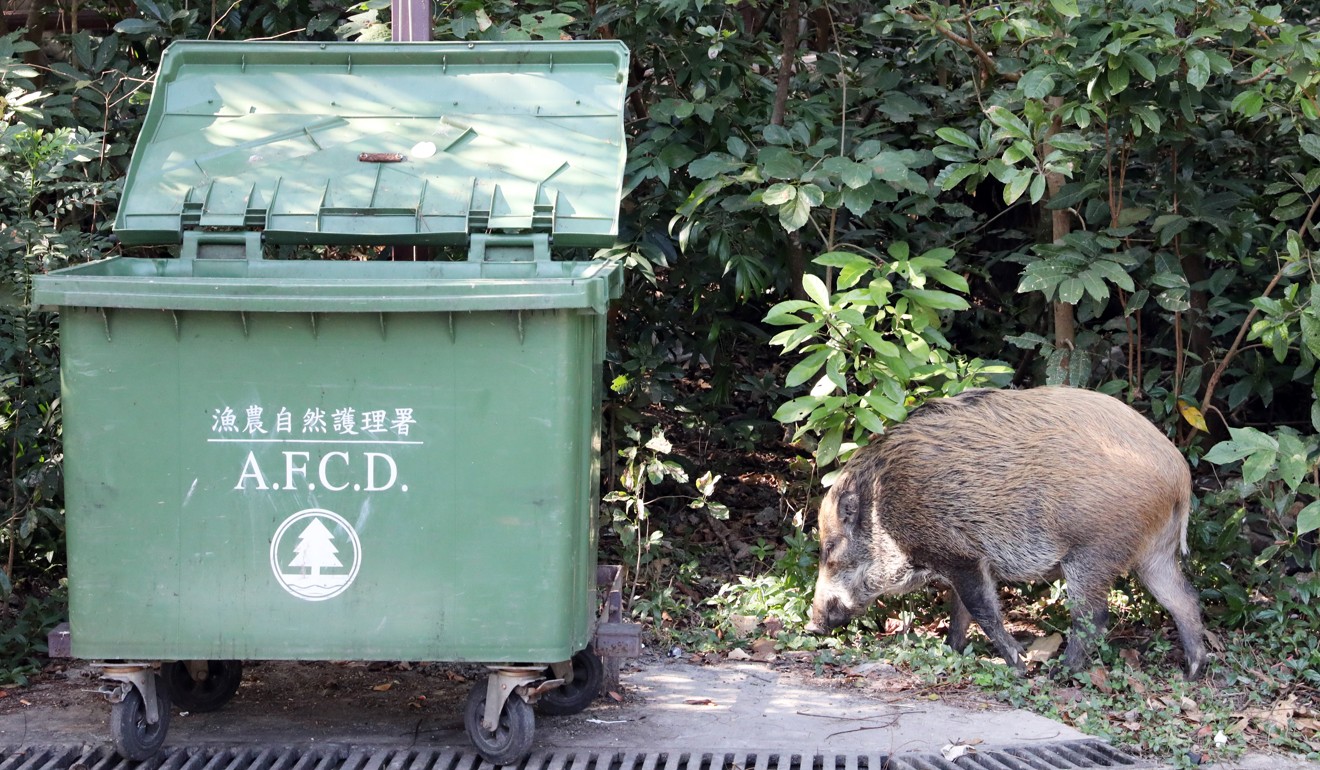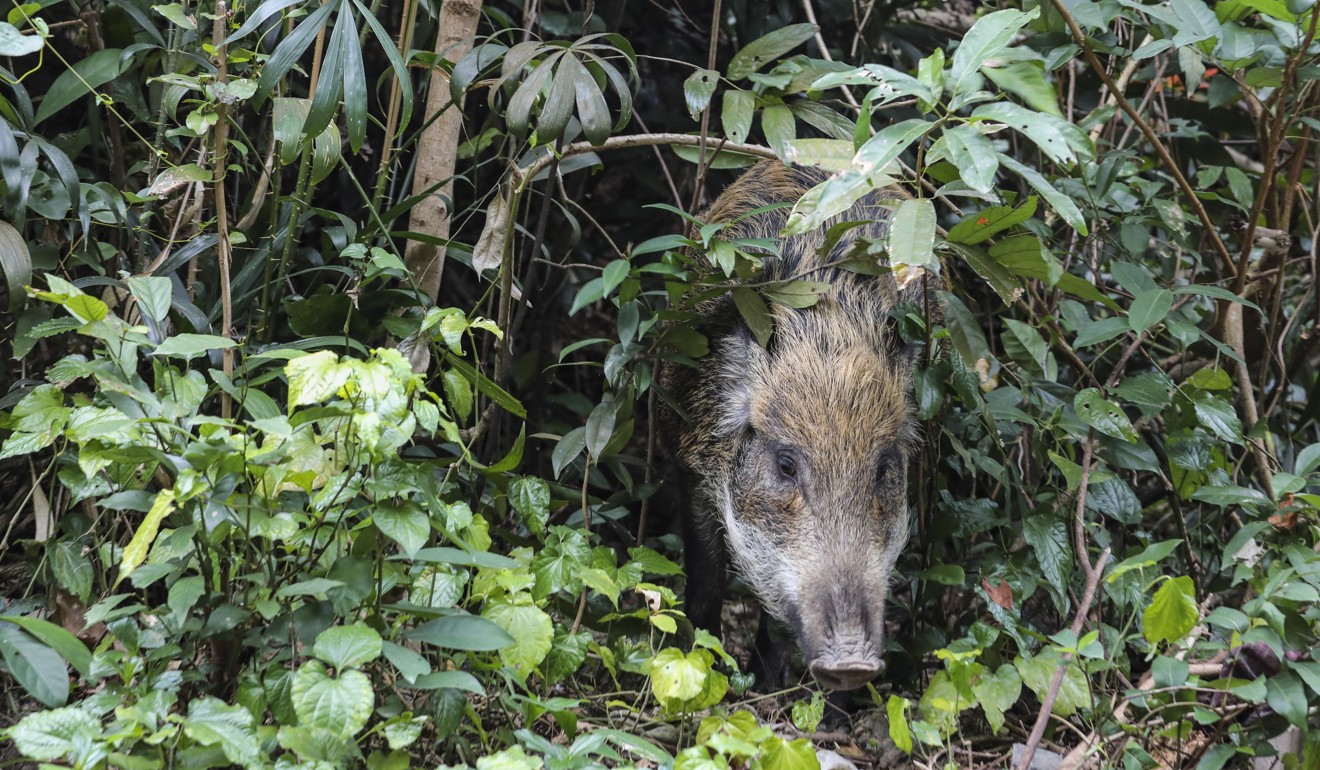
More aggressive wild boars may be put down, says Hong Kong agriculture chief
- Officials and lawmakers say people feeding boars has led to an increase in the number of the animals captured, and have called for more awareness of the dangers
- Chief Executive Carrie Lam says she has asked the Department of Agriculture, Fisheries and Conservation to conduct a comprehensive review of the boar situation
The number of wild boars caught in Hong Kong reached a five-year high in 2018, with district councils calling for better education to warn the public not to feed the animals – thought to be one of the reasons behind the soaring numbers of chaotic appearances in urban areas.
The government is also considering culling more aggressive boars.
Director of Agriculture, Fisheries and Conservation Leung Siu-fai said officials are reviewing their management policies on boars and would consider adopting the approach of putting down some animals.
“For those that may be more aggressive, or when they are really so big and pose a threat to residents, we would euthanise them, rather than putting them back into the wild,” Leung said in an interview with a local broadcaster aired on Saturday.
Figures from the AFCD showed that 129 wild boars were caught from January to October 2018, up from 12 in 2014 and 28 in 2015. A total of 106 were caught in 2017.
He added that the department had commissioned a tertiary institution to design a new kind of rubbish bin which could stop boars from pushing them over or open them to hunt for food. Officials will find spots for product trial soon.
Two wild boars wandered into a barbecue area at Aberdeen Country Park at 3pm on Friday where local residents were grilling food. The animals first searched a rubbish bin for food and then passed through barbecuers, sniffing the ground for anything to eat. Few seemed to be perturbed by the boars’ presence.

“Wild boars don’t normally attack people. They don’t bother me. If they do come close, I’ll just fan them away,” said Asmina Rai, 16, who was having a barbecue with her family at the park.
“Many people find boars interesting as it is rare to see wild animals in cities. Most people would take pictures.”
A shopkeeper at the barbecue site, surnamed Wong, said he sees seven to eight wild boars every day but they never attack people.
“Local residents have got used to the animals. Only occasionally, some tourists or people from other parts of the city have called police, who come and chase the animals uphill,” he said.
Hong Kong tackles wild pig problem with birth control scheme
Having worked there for three years, Wong said he noticed some people fed wild boars with bread and corn.
“Because the animals have got used to being fed by people, they are no longer afraid of humans,” he said.
Wong’s words echoed a major concern from the Agriculture, Fisheries and Conservation Department (AFCD) and district councils, which have been urging the public not to feed wild boars.

“Many people are ignorant of the risk of being attacked by wild boars and keep feeding them, which has led the animals to look for food in populated areas,” said Pauline Yam, a member of the Southern District Council.
A law should be passed to punish those who feed wild boars
“Apart from country parks, wild boars are appearing more often in urban areas, where there are a lot of children and elderly people, to search for food, causing chaos and endangering residents,” she said
To address the problem, Yam urged the government to increase awareness of the danger of feeding wild boars.
“I think an effective solution is through education to let people know the danger and the negative impact of feeding wild boars. A law should also be passed to punish those who feed wild boars,” she said.
Tai Po District Council held a meeting with the AFCD on Friday morning to discuss solutions to the wild boar problem.
Yam Man-chuen, a Tai Po District Council member, said the main focus was on the insufficient number of officers to deal with immediate threats from wild boars as well as the urgency of teaching the public that feeding wild animals is a serious nuisance.
“Most people are concerned about safety. However, views are divided. Some say that we should protect wild boars and take mild methods, while others, especially villagers, think that hunting and killing are the proper measures to ensure the safety of residents,” he said.

“I think it is important to find out the underlying reasons why wild boars leave their habitat for urban areas. Is it because of the development of rural areas or a lack of food? Otherwise, the problem will remain and wild boars will just keep searching for food wherever they can,” he said.
Second wild boar encounter in two days as four animals subdued in Aberdeen
According to the AFCD, removing food sources of wild boars is the most effective way of reducing their presence in residential areas or at public facilities. The department said it has been carrying out a series of promotion and education initiatives, including television and radio promotions, exhibitions, talks and visits to urge the public not to feed wild boars.
At a Legco meeting on Thursday, Hong Kong leader Carrie Lam Cheng Yuet-ngor said the government is concerned about the wild boar problem.

“I have already asked the AFCD to conduct a comprehensive review of the current wild boar situation in all districts. I hope the AFCD will come up with an entire plan, including education – asking people not to get close to wild boars or feed them,” she said.
Boar to be wild: pig leads Hong Kong police on five-hour chase
“It is a fact that more wild boars have been sighted. Many of our friends say they have seen the animal more often, sometimes in groups. They are no longer afraid of humans. We should be wary of wild boars because we don’t know if they will attack us,” she said.
In response to lawmaker Kenneth Lau Ip-keung’s question about whether the AFCD was planning to restart wild boar hunting teams or take other measures to control the population, Lam said the department would come up with a comprehensive scheme.
On Friday, Lau posted a video on his Facebook page of a boar charging into a young child riding a bicycle in a park in Cyberport.
In the widely circulated clip taken by a friend of Lau last October, the child was knocked down but quickly got up and ran to a nearby adult. The boar ran off, chased by a dog.
Additional reporting by Kanis Leung


